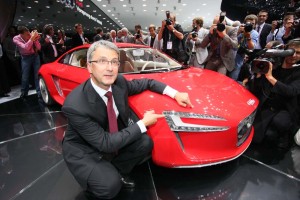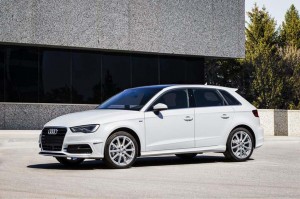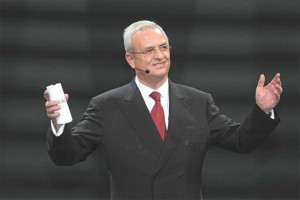Audi CEO Rupert Stadler has been “provisionally” arrested, the luxury arm of Volkswagen AG confirmed Monday morning, as the German government probe into emissions rigging by VW and the Audi subsidiary continues to expand.
Nearly a dozen executives and managers from the vast Volkswagen Group empire have been indicted since the automaker was first charged in September 2015 with rigging various diesel engines to illegally pass emissions tests. Several have already been convicted in the U.S., though others have fled to Germany where they cannot be extradited. But as many as 20 others are now under suspicion as Germany moves forward with its own investigation, according to the Associated Press.
“Audi CEO Rupert Stadler was provisionally arrested this morning,” VW’s largest luxury brand said in a statement Monday morning. It added that “the presumption of innocence remains in place for Mr. Stadler.”
(Diesel scandal spreads as Daimler is hit with a forced recall. Click Here for the latest.)
A report by German news service dpa indicated prosecutors said Stadler’s detainment because they feared he might try to flee.
Audi said last week that it is “cooperating with authorities.” That follows a series of raids on Audi, VW and Porsche division offices in recent months seeking further information about the cheating scandal.
Stadler himself has been frequently linked to the scandal in German media, though he was recently given a contract extension as CEO. It is not clear specifically what he has been accused of but a judge has ordered that the executive remain in custody pending the possible filing of charges.
The diesel emissions scandal begin to unravel when a private testing company attempted to understand how VW and its various brands were able to meet strict pollution mandates, in some instances without using the urea additive other manufacturers required. In September 2015, the U.S. Environmental Protection Agency weighed in, accusing VW of using a “defeat device,” software designed to adjust engine settings during emissions tests to reduce the output of smog-causing oxides of nitrogen and other pollutants.
VW subsequently acknowledged rigging two of its diesel engines. In a series of settlements with U.S. and California authorities, as well as owners, shareholders and diesels, the company agreed to a mix of fines, repairs and vehicle buybacks – as well as the creation of a program to promote the sale of electrified vehicles. All told, those moves are expected to cost the carmaker as much as $30 billion.
Meanwhile, eight current and former VW employees have been charged in the U.S., two now convicted, with the others out of reach in Germany.
But the cheating probe continues to play out in VW’s home market, even as it begins to wind down in the U.S. Just this month, German authorities levied $1.2 billion in fines against the Volkswagen Group. In May, Martin Winterkorn, the VW CEO at the time the scandal erupted, was indicted. And nearly two dozen other current and former employees remain under a cloud of suspicion.
(VW tagged with $1B fine in Germany for diesel-cheating scandal. Click Here for the story.)
Stadler is the highest-level executive targeted since Winterkorn was indicted. The generally well-respected executive had been one of several high-level managers who allegedly either approved of the diesel rigging plan or attempted to cover it up once they became aware of the scam.
(Click Here for a 1st look at the new Audi Q8.)



